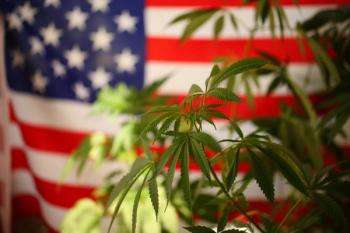
New York launches Responsible Workforce Training Program by OCM and NYSDOL to provide safety education to cannabis workers.


New York launches Responsible Workforce Training Program by OCM and NYSDOL to provide safety education to cannabis workers.

Jonathan Miller of the US Hemp Roundtable will testify at the hearing “Restoring Trust in FDA: Rooting Out Illicit Products,” advocating for safe and fair regulation of hemp-derived cannabinoids.

Here, we bring you our top four recent articles covering the cost of compliance in the industry, the role of lighting in indoor cultivation, and research involving cannabis ointment and cannabis-coated pillowcases.

The financial and reputational risks of non-compliance far outweigh the upfront investment required to establish robust compliance systems. This blog explores the true cost of compliance, what non-compliance can mean for a business, and why investing in compliance is a proactive, strategic decision rather than a burdensome expense.

Here, we bring you our top five recent news articles covering a Teamsters contract in Maryland, the US Hemp Roundtable and BlueCheck, the launch of Edibles.com, the latest CReDO webinar, and a Texas hemp market report.

A recent Texas hemp market economic report highlighted rising wages and job growth as well as how proposed regulations could harm the industry.

US Hemp Roundtable announces new partnership with BlueCheck to help support online hemp sales.

California extends ban on hemp products containing any amount of THC.

A brief look at how cannabis is regulated in Poland.

A brief look at how cannabis is regulated in the United Kingdom.

Here, we bring you our top five recent news articles covering our latest publication, workplace safety for cannabis businesses, the latest cannabis research, and more.

Cannabis businesses—whether in cultivation, manufacturing, or retail—must comply with OSHA’s safety standards. This blog explains the importance of robust safety protocols, regulatory compliance, and proactive hazard management for long-term success.

Here, we bring you our top five recent news articles, covering National Hemp Day, certifications, and cannabis research studies.

The National Assembly in Panama approved a bill that would regulate the production, marketing, and export of hemp in the country.

This guide explores key certifications, benefits, and strategies to help position your cannabis company for success in 2025, while ensuring compliance, efficiency, and market access.

Two leading organizations, National Cannabis Roundtable and the US Cannabis Council are combining to create the new organization.

DEA Judge John Mulrooney II cancels upcoming cannabis rescheduling hearing, postponing cannabis reform.

It’s that time of year again—the Cannabis Science and Technology (CST) top 10 articles from the previous year. CST published a wide variety of content throughout 2024. Here is just a small snippet of some of the top articles that our readers enjoyed. See if any of your favorites made the list!

Here, we unpack key events and regulatory milestones of 2024, including rescheduling, OSHA compliance, banking, and innovations, plus we discuss the outlook for 2025.

Advancements in blockchain technology point toward an evolving landscape where transparency, security protocols, and regulatory compliance integrate into standard cannabis operations.

With the recent 2024 presidential election behind us, the future of cannabis still has many unknowns moving forward and questions still to be discussed. In this roundtable discussion with four knowledgeable industry leaders, we explore the nuanced political landscape of cannabis legalization and rescheduling in the context of the election, including state and federal policies and possible paths forward for testing standardization. Join us in the second part of a compilation of responses from Kim Anzarut, CQA, CP-FS, CEO of Allay Consulting; Susan Audino, PhD, founder of S.A. Audino & Associates, LLC; Zacariah Hildenbrand, PhD, research Professor at the University of Texas at El Paso; and David Vaillencourt, CEO of The GMP Collective.

With the recent 2024 presidential election behind us, the future of cannabis still has many unknowns moving forward and questions still to be discussed. In this roundtable discussion with four knowledgeable industry leaders, we explore the nuanced political landscape of cannabis legalization and rescheduling in the context of the election. We discuss what drives support or opposition from both sides of the aisle, the complexities of balancing state and federal priorities, and more. Join us in the first part of a compilation of responses from Kim Anzarut, CQA, CP-FS, CEO of Allay Consulting; Susan Audino, PhD, founder of S.A. Audino & Associates, LLC; Zacariah Hildenbrand, PhD, research Professor at the University of Texas at El Paso; and David Vaillencourt, CEO of The GMP Collective.

ASTM Standards D8557-24 and D8556-24, provide unified guidelines for GMP (Good Manufacturing Practices) and QMS (Quality Management Systems) in cannabis operations. These standards enhance compliance, product safety, and operational consistency across the industry for the benefit of operators, consumers, and other stakeholders in the industry.

The recent release of the Senate's draft for the 2024 Farm Bill could reshape how this versatile crop is cultivated, processed, and regulated.

This month’s GMP Collective webinar focused on how collaboration within the industry can lead to overall growth and success.